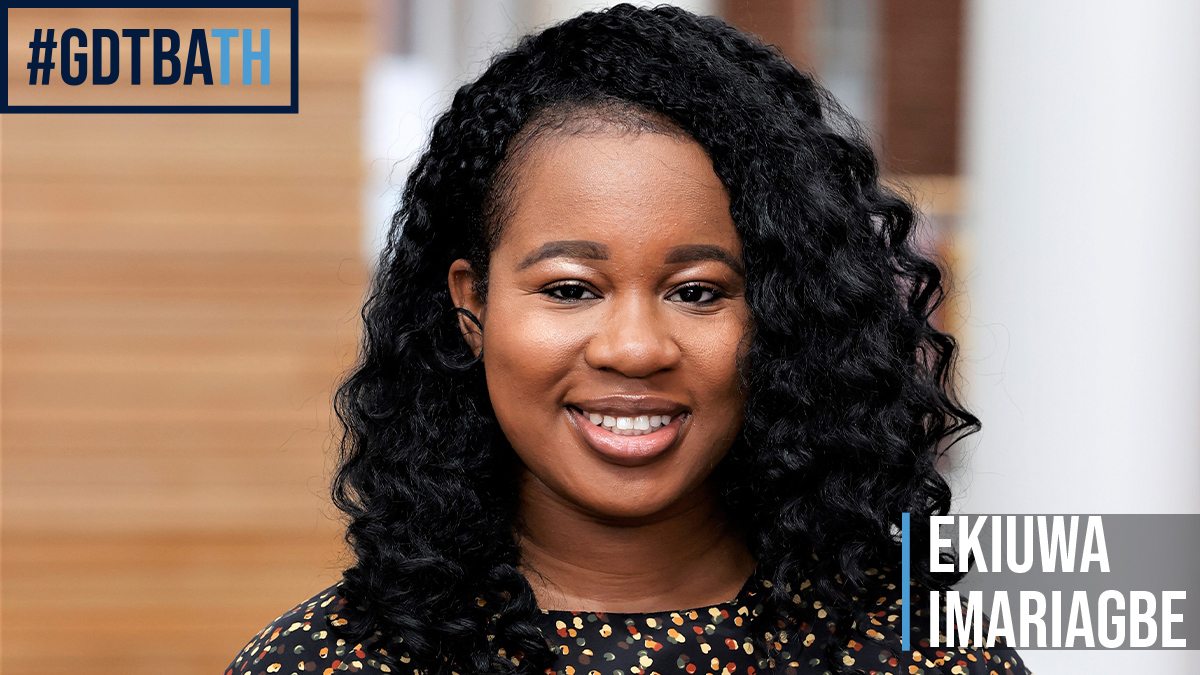#GDTBATH: Ekiuwa Imariagbe
First-generation college student Ekiuwa Imariagbe shares her experiences of navigating higher education and gaining ownership of her future.

As a first-generation U.S. citizen and descendant of immigrants from Nigeria, my culture realizes a great reverence for health care providers because of their rigorous training and the demand and challenges they face. My parents always encouraged my siblings and me to take advantage of America’s educational opportunities because that was an avenue for us to gain ownership of our future.
There is so much gratitude and joy in my family because they have a daughter who is able to achieve what they didn’t have the opportunity to. I have noticed over the years my parents have grown to trust me with my decision-making skills. They now can see my vision and the reason why I am pursuing a master’s degree in public health and what it means to be a health provider outside of a clinical setting.
My passion for pursuing a career in health care is the gratification of knowing that I am supporting and influencing methods to achieve affordable access for all. I find it fulfilling to bring improvements to patient experience by understanding the patient population’s nuances, their journeys and by implementing improvement strategies for their needs and concerns.
As a child, I found how empowering advancing my education was and how others did not always have a direct career path. I learned how a study abroad experience, leadership retreat or summer internship could redirect someone to a path that they would not have imagined otherwise. Seeing these positive representations as a child encouraged me that I can succeed as a woman of color in STEM, which led me to graduate from Syracuse University cum laude and later to UNC-Chapel Hill to enroll in the UNC Gillings School of Global Public Health. My combined academic and personal experiences have allowed me to grow in confidence in my ability to advocate for myself and for the resources I need to thrive.
Aside from Gillings being competitively ranked as the No. 1 public school for public health and the No. 2 nationally-ranked program, it was the only school that sent me a handwritten postcard congratulating me on my acceptance and welcoming me to the health behavior family. As a first-gen student, that personalization and acknowledgment meant so much to me at the time. I felt seen, understood and appreciated.
Gillings also provided the academic flexibility I needed in a program to take additional electives and tailor my MPH according to my interests. I knew that I had the maturity, tenacity and determination to join a graduate program, but I was more unsure about what that process would entail or how different undergrad was from graduate school in terms of workload and expectations.
Luckily for me, I had close friends who were also applying to MPH and masters-level program, and as an alumna of the McNair Scholars Program, I had an extended community to lean onto, ask questions and seek advice. I owe a significant portion of my success to mentors from my undergraduate program, several educational pipeline programs and my work family at Diversity and Student Success. The result of having adults who supported and believed in me and wanted to see me grow and excel gave me the confidence to apply for opportunities I could not have had otherwise. They taught me to value mentorship and authentic relationships.
I think that’s one of the beautiful aspects of being a first-gen: Navigating the journey may be difficult and unclear at first, but the connections you build along the way are unmatched. You have a community of people who are invested in your success and that is something I would never want to trade.




